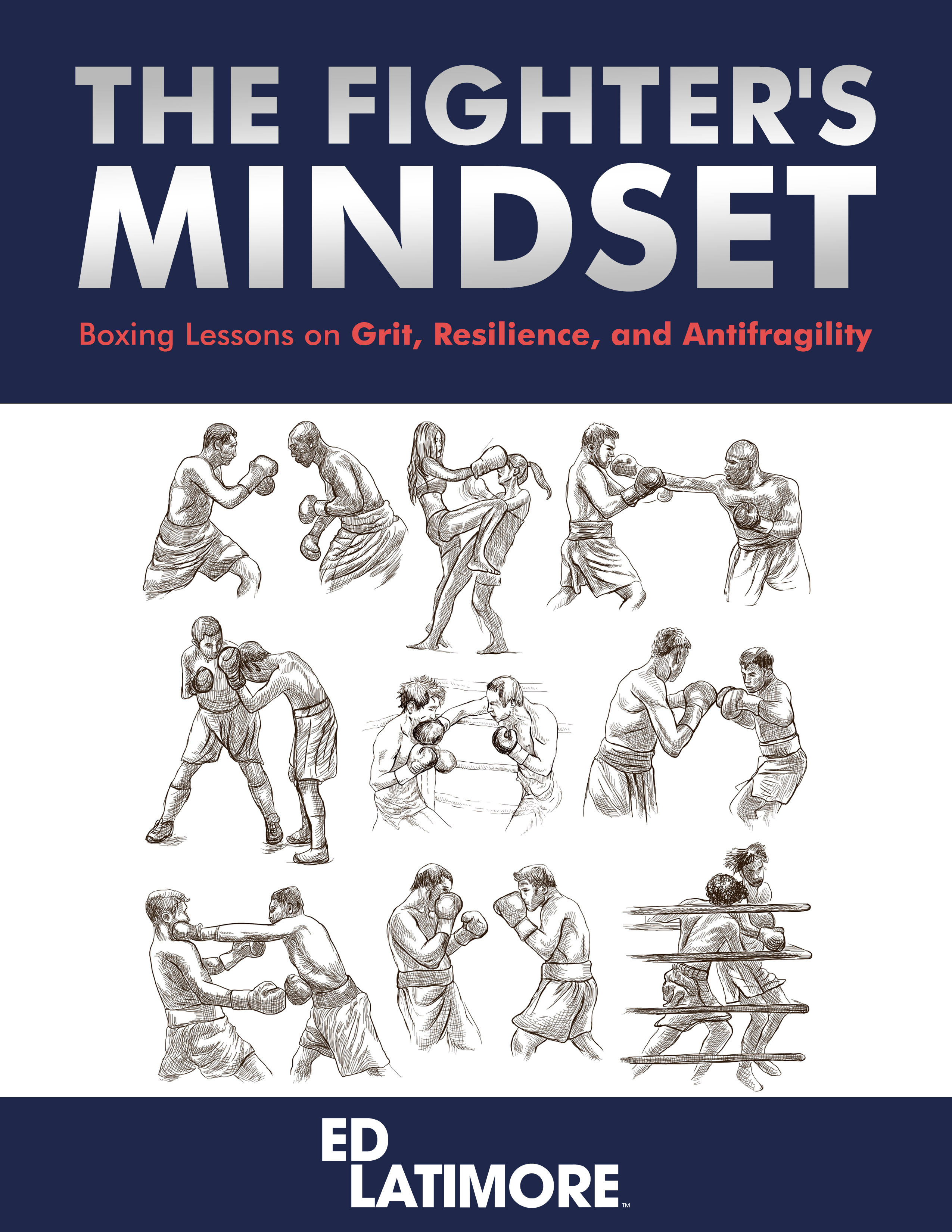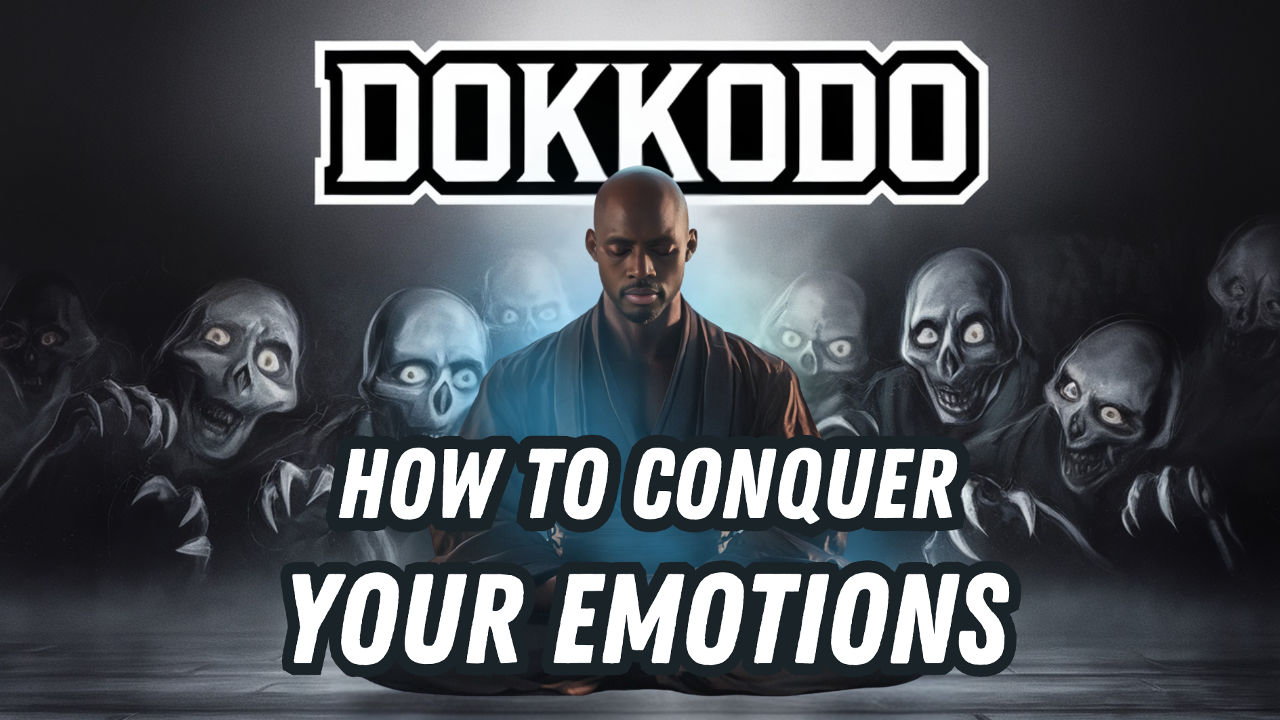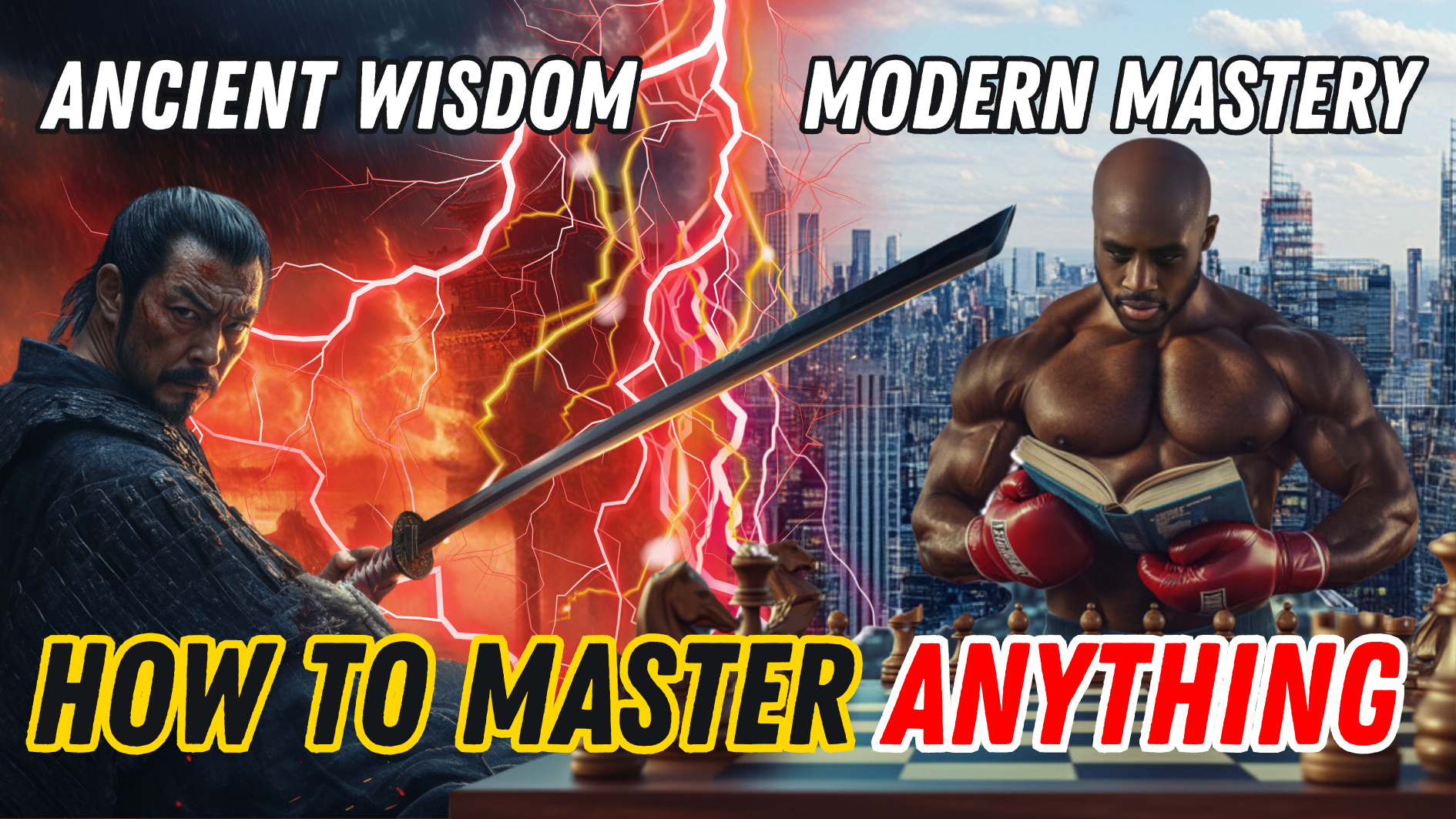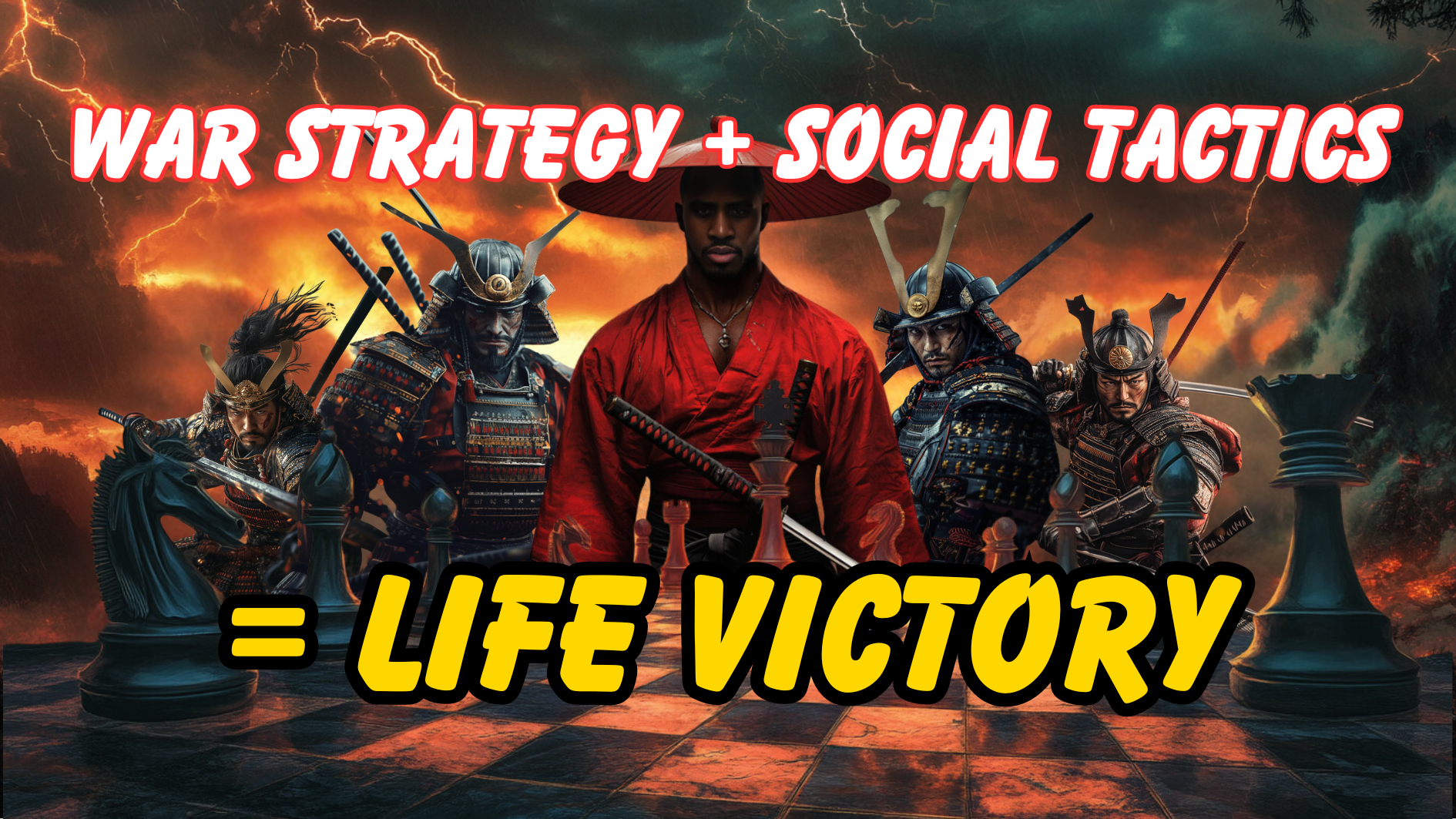The Dokkodo (“The Path of Aloneness,” The Way to Go Forth Alone,” or “The Way of Walking Alone”) is a short work written by Miyamoto Musashi shortly before his death.
With victory in over 60 duels, Musashi was considered the greatest swordsman of his time. He is not just known for his superior swordsmanship but also for his more popular work, The Book of Five Rings (Go Rin No Sho).
Read my summary of The Book of Five Rings
Although both books of wisdom were cultivated from his experiences, they cover different aspects of his life. The Book of Five Rings focuses on the applications of the martial arts lessons learned as a bushido practicing “Ronin” (wandering samurai). The Dokkodo condenses the main ideas that Musashi not only believed made him successful but also contributes to a meaningful life.
Musashi’s Dokkodo has a stoic overtone. Like a lot of stoic life advice, The Dokkodo will give you a new perspective on old problems that modern wisdom often has trouble solving.
In this post, I’ll be finding modering meaning and interpretation of The Dokkodo. Not all ideas will require a modern twist while a few will require an updated reconsideration. Overall, following these principles would still lead you to a stable, content, successful life.
Miyamoto Musashi’s 21 principles of Dokkodo
1. Accept everything just the way it is
People push back against this principle because one reasonable interpretation is that you should not bother to change things. Although reasonable, this is simplistic to the point of inaccuracy and grossly imprecise.
Accepting things as they are means you do not wish for them to be anything other than what they are. When you refuse to accept the world as you see it, then you won’t take the necessary action to prepare yourself for the truth of what’s in front of you.
2. Do not seek pleasure for its own sake
Good feelings should come as the side benefit of meaningful action. When you make pleasure the central pursuit, you exchange your time and energy for a feeling that’s only supposed to be a fleeting reward for overcoming challenges.
Pursuing pleasure for its own sake is one of the ways people get wrapped up in addiction. When you take the easy way to dopamine release, rather than do the hard work of earning it, taking the easy way to dopamine by drugs, alcohol, or meaningless sex do nothing to develop you.
When you take the hard way to happiness by doing something worthwhile, you become better for it. When you take the easy route to happiness for happiness’ sake, you degrade your character and exaggerate your weaknesses.
3. Do not, under any circumstances, depend on a partial feeling
If you use your feelings as the basis for making decisions, you have to be completely sure. A half-assed commitment is worse than no commitment at all.
Emotions are fickle. Ideally, you’re objective. If you make decisions based on feelings, you have to be more certain, as there is less objective information supporting your decisions. You also need to be prepared for the possibility of being wrong and the consequences of this outcome.
This is why acting on partial feelings is worse than not acting at all. A partial feeling lacks total committment and absolute conviction; the things needed to face any challenge in your life.
4. Think lightly of yourself and deeply of the world
If you take yourself too seriously, you miss the biggest joke of all: you’ll die and in under 150 years, there will be no one left who ever remembers interacting with you.
If you’re particularly noteworthy, there may be first accounts of your life. But for the most part, your life is a blip in time.
But if this is true, then why think deeply of the world? Your actions (or lack there of) will extend far beyond you. Although your life is a localized blip in the river of time, your actions will reverberate down stream and influence events and minds you will never interact with.
5. Be detached from desire your whole life long
Desire is a funny thing. Without it, the actions in your life would be reduced to only things you need to survive or that you’re forced to do by others. However, if you let desire rule your life, then the opposite problem happens.
You avoid doing the necessary things and only do what you want to. The ideal position is to be detached from desire.
Detachment doesn’t mean you don’t feel or even enjoy it. It means that you don’t let your feelings towards something keep from pursuing or retracting from it. You do nothing to prolong the experience nor do you try to cut it short.
6. Do not regret what you have done
It’s natural to have regrets, but this does not mean that you should live in a state of regret.
Many people say that you shouldn’t regret anything, but I think what they mean is that they don’t regret how things have turned out even if they had to go through some difficulty and hardship to get there. So we do not regret the outcomes.
We do not regret what we have done. This is only possible if you live intentionally and accept that mistakes happen. Learning occurs through those mistakes. Learning is how improvement happens. And how could we ever regret improving our lives.
7. Never be jealous
Jealousy is a natural emotional. You can’t control if you get jealous, but you can control how you see the world and what you do if jealousy if it afflicts you. How you see the world will determine if you view another person’s success or accomplishments through the eyes of envy or motivation.
If you’re willing to do the work to get what another person has, there’s no reason to be jealous. The best way to view jealousy is as a reminder that it’s time to get to work becoming more capable of accomplishing and acquiring.
Your longing for what others have can either spurn jealousy or drive motivation. One pushes you to be great while the other ignites hate.
8. Never let yourself be saddened by a separation
All things must end. Eventually even you will be separated from the life you have. Nothing is permanent. This includes any relationships you have in your life.
Following Musashi’s precept on never having an attachment would automatically prevent you experiencing sadness about separation, but I like to modify some of the more stoic points. The idea that you can be aware of emotions but you never want to be ruled by them.
Keeping this in mind, you’ll experience sadness when you lose something that you’ve inevitably become attached to. This isn’t a negative, as I genuinely believe attachment gives life meaning, but if you’re a Ronin like Musashi, then attachments could cost you your life.
9. Resentment and complaint are appropriate neither for oneself nor other
Complaints and resentment are just like jealousy.
They’re negative emotions that should be used as a signaling tool to make yourself into something better. Resentment signals that you believe a person or situation owes you something. Once you realize that no one owes you anything, it’s the beginning and end of your resentment.
Complaints are also worthless, but for a different reason. Complaining does nothing to fix the problem. It highlights it and brings it attention to it, but it makes no progress towards a solutions or offers any ideas to remedy the situation.
Complaining is, in many ways, the most wasteful action you can take in the face of challenge.
10. Do not let yourself be guided by the feeling of lust or love
Musashi is again reminding us of the danger of attachment. We have to remember that Musashi’s advice is based on the time’s he lived in and the danger he faced. When in taken in the modern context, part of this advice is still useful and true.
The problem with being led by lust is that the payoff is minuscule.
It’s a feeling that is relieved in one release. If you are lead by something that can be erased in only a second that you will do almost anything to fulfill, then you will likely take unnecessary risks that have a short payoff if successful and can ruin you if they aren’t. In fact, it still has the potential to ruin you even if you succeed.
Where I almost outright disagree with Musashi is the idea of not being guided by love. While I don’t think that you should blindly follow love, I do think there is a tremendous value in the power of love and the courage of protective instinct in foster.
Now, I am also not fighting for my life in a hostile land, so I can afford the luxury of attachments and the duty of protecting them, but I can understand why Musashi come to this conclusion.
Check out my my summary of Sun Tzu’s “The Art of War”
11. In all things have no preferences
In this precept, I don’t believe that Musashi is telling us to not care which way the wind blows our lives. I’ve often expressed a similar idea, but it’s based in having a clear set of goals and values.
If you’re living true to yourself and what you want out of life, you will lack the energy or time to prefer most things. In fact, developing certain preferences outside of what you deem most important will set you back and distract you.
I may be wrong or self-serving in my interpretation of this precept, but to make this useful to modern life, I believe this is the most viable interpretation that still retains the spirit of a stoic approach to life.
Have no preferences after you’ve determined what’s most important for your life.
12. Be indifferent to where you live
Many stoic themes throughout Musashi’s Dokkodo are difficult for us to imagine applying in our modern world. I suspect that this is one of them. In fact, I am certainly not indifferent to where I live, but we have to consider the world of Musashi.
He is wandering through 16th-17th century Japan, without many of the modern luxuries we have at our disposal today. Anyone who was capable of creating a higher standard of comfort likely had to devote a tremendous amount of time and energy to them. To Musashi, this not only represented a distraction from the work at hand but it was also a didn’t represent a significant change in quality of life.
Today, the poorest people in most of the English-speaking world (and beyond) live better than the rich of Musashi’s era. However, they have to continue with issues like crime and violence that often accompany certain places.
While I think the advice given is spot on about your life after attaining a certain base level of safety and security, our modern world has too many new dangers to be completely indifferent to where you live and influences you’ll allow around your family.
Learn from more books in less time with Shortform
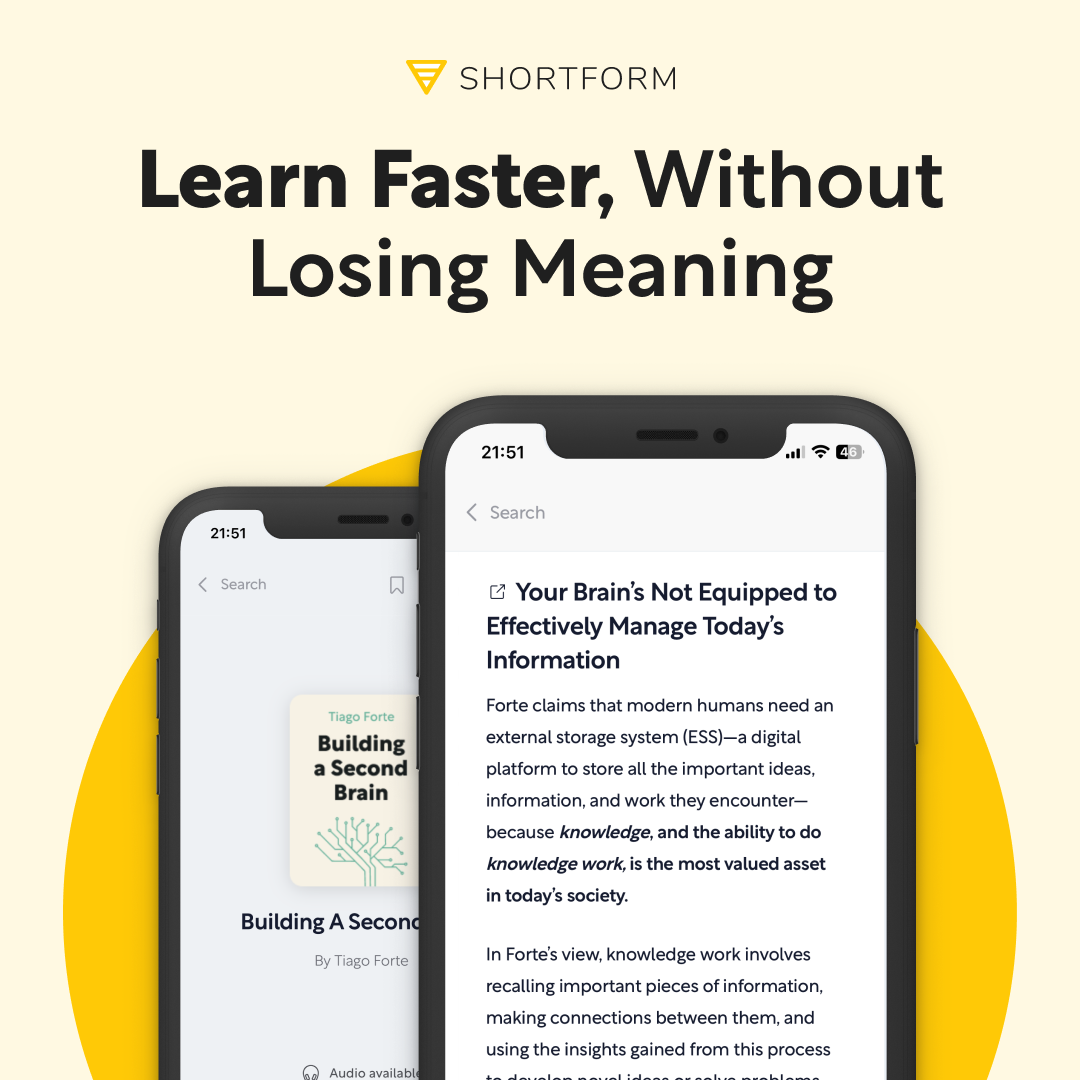
I don’t normally think you should read the summary instead of the entire book, but Shortform has completely changed my mind.
Their summaries are high-level works of art, complete with commentary and additional insights to help you bridge together information and concepts presented in the books.
But that’s not even the best part…
Each summary has an audio version so that you can listen on the go. You’re able to enjoy the summaries the same way you enjoy your favorite podcast! And they cost less than you’d spend on just one book.
Save time and money with Shortform. Use the link below to save 20%
Check out Shortform!13. Do not pursue the taste of good food
Everyone loves good food, so this one that is likely to receive a lot of push back, but we have to consider who this advice is for and where it comes form. This reminds me of my time in the military and my time being poor.
If you experience luxury, you’ll strive for luxury. This is not a bad thing, as it will make you ambitious and motivated to achieve more, but if your austerity is inescapable or your mind is not sufficiently tough, then run the risk of becoming a distracted complainer.
This also has an interesting nutrition component.
The primary focus of your diet should be to attain and maintain health. While most healthy food is delicious (especially once you stop eating a lot of processed poison that is passed off as food), if you eat simply for taste, then there is a good chance that you’ll eat more things that are bad for and in greater quantities.
14. Do not hold on to possessions you no longer need
This is a straightforward idea that does not need a lot of elaboration. Once something has served its purpose, discard it.
Everything you keep that serves no purpose comes with a cost. That cost may not be apparent, but it exists, and you pay it. Everything has a cost, whether it be in reduced time, fewer opportunities, or decreased mobility.
It something is no longer benefitting you, then you owe it to the finiteness of your life to discard it. This idea can also be applied to your relationships, though I wouldn’t use the verb “need.” Your relationships aren’t merely utilitarian. There are many people you don’t need, but should keep around.
The problem arises when you remain in relationships that not only no longer serve you, but inhibit you from making progress. Think of how many people you know who have maintained relationships only because of how much time they’ve put in or out of convenience.
Do not hold on to things or people that no longer serve you.
15. Do not act following customary beliefs
Musashi is warning you not to follow how the masses think and behave.
I see this as a reminder to think for yourself and not merely be a sheep. Now, I don’t want people think this means to act in a contrary nature to something just because it’s what everyone else is doing. This means that don’t do something just because everyone else is doing it.
If you think deeply about something and come to your own conclusions about it, which happens to align with what is popular, then this is fine. It happens. After all, society has achieved this level of order by getting many things right.
But society has also gotten many things wrong. It’s up to you to use your faculties and determine the best course of action. Just don’t let it be determined by popular opinion.
Check out my summary of “The Hagakure”
16. Do not collect weapons or practice with weapons beyond what is useful
This is advice about efficiency and diligent practice, all rolled into one.
Musashi is telling you that to carry more than you need is an unnecessary liability. Everything you bring along with you comes has a cost. The benefit you gain from carrying it with you should outweigh the cost associated with it. This remains true as long as you can use what you have.
So, when you carry excess, there is still a cost generated. However, now you can’t use what you have and you suffer as a result.
Granted, the application of this idea is from a time period where there were no motorized vehicles or methods for storing communication, but the idea still remains: carrying more than you can use will set you back.
He also speaks of there being a limit to how much you should practice.
There is no hard time limit, but instead he simply warns you to not practice beyond what is useful. This looks to be another optimization problem.
Once you’ve gotten all you can from a particular practice session, it is wise to move on. There is a point of diminishing returns where the time you put it is less to less improvement or worse, can causes you slip backwards in your development.
17. Do not fear death
Everything will die. You will die. It makes no sense to fear the inevitable.
I don’t pretend that the idea of dying isn’t scary. However, I combat this fear by thinking often about it and imagining what the day will be like when I meet the end. I find meditating on death to be calming and it puts many things in perspective.
One day, this will all end. Make sure you spend the time you have left in a way that will allow you to leave this planet with no regret. Because no matter what you do, you’re going to leave it.
18. Do not seek to possess either goods or fiefs for your old age
This is a great position for this precept, following up on the precept about death.
Any posessions you have at old age can not only not be enjoyed, but you can’t take them with you. Of course, there is the argument for passing the wealth on, but this may have eluded Musashi, as he had no biological chidlren and not much of anything to pass on.
19. Respect Buddha and the gods without counting on their help
One of my favorite sayings is that “God helps those who help themselves.”
I like this saying because it sums up my basic sentiment towards God and all higher powers: they have created this world but it’s up to us to make it livable. God has nothing to do with our daily living habits.
You can’t curse God when you get nothing nor give him credit when you do, for God is impersonal in his approach to the world. This is why bad things can happen to good people and vice-versa.
Respect him as your creator, but do not look to him as your savior.
The world is fair because it's unfair to everyone.
— Ed Latimore (@EdLatimore) July 16, 2020
20. You may abandon your own body, but you must preserve your honor
Never do something that would embarrass your family and tarnish your legacy if it came out after you die. Your actions extend beyond you.
There is a saying: “The future is secure when men plant trees whose shade they’ll never sit in.” Ideally, you will use your life to set up a better world for those who come after you. But, if you can’t do that, at least don’t mess things.
If you live a life that meets the conditions of the precept—one that preserves your honor—you’ll never have to worry making the world worse or darkness you did while living coming to light after you pass.
21. Never stray from the way
Musashi often speaks of “the way” in The Book of Five Rings. While he was specifically to the way he lived and the ideals that he followed, it’s easy to adapt this to a modern society.
Whatever way you follow, you must live true to it. There must be a set of values and ideals that you must vow to live your life by. There are certain lines that should never be crossed or things that you won’t do, otherwise you may find yourself giving into temptation and indulging in character-breaking weakness.
As the old saying goes, “If you don’t stand for something, you’ll for anything.
Boxing Lessons on Grit, Resilience, and Antifragility
In this e-book, I teach you 20 mindset lessons I learned from my 13-1-1 professional heavyweight boxing career.
Use these to conquer any challenges you face, in the ring or in life.
Learn how to develop the mindset of a fighter, from a fighter, so you can win the battles you face.
